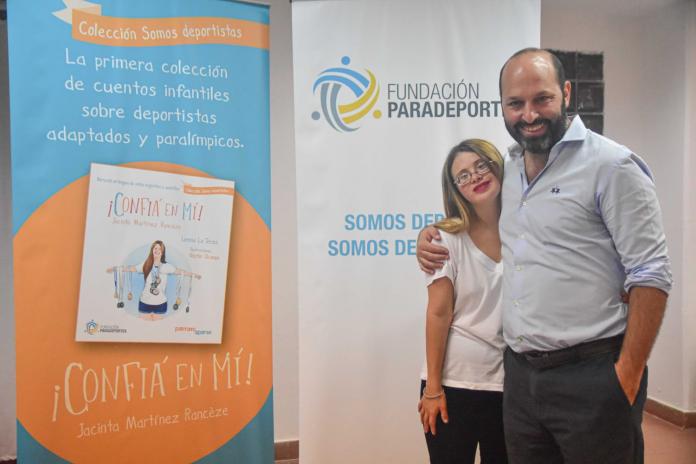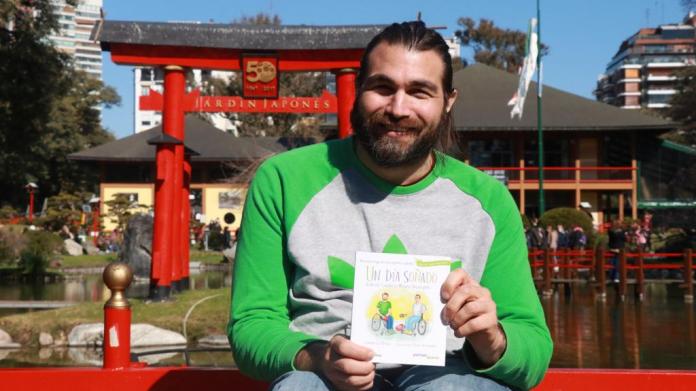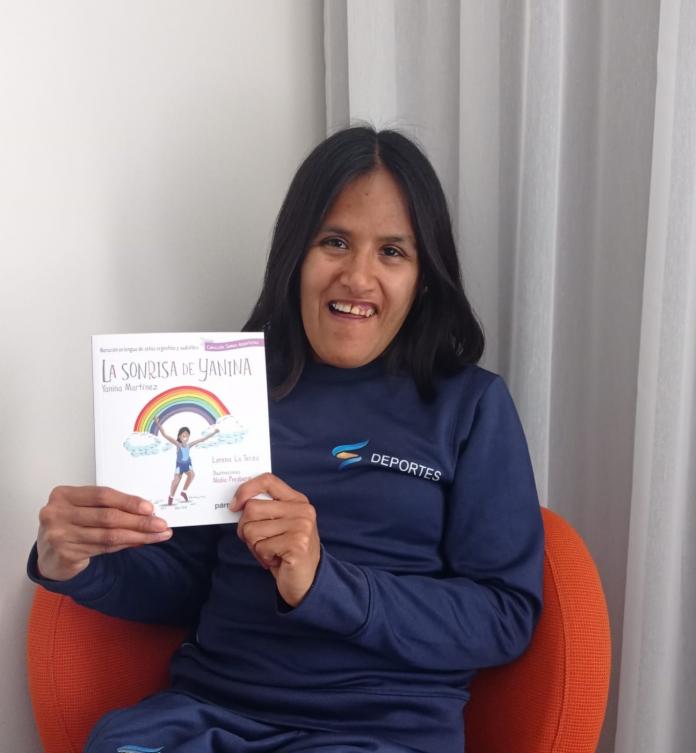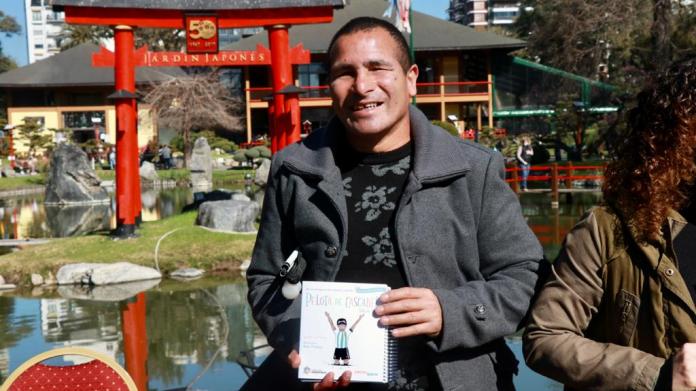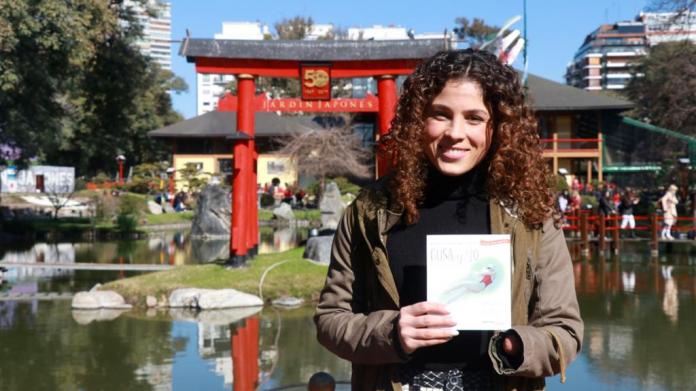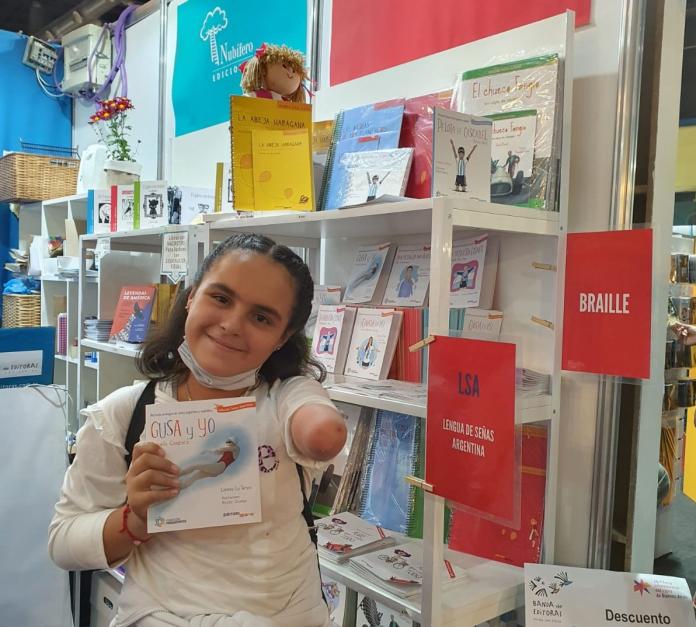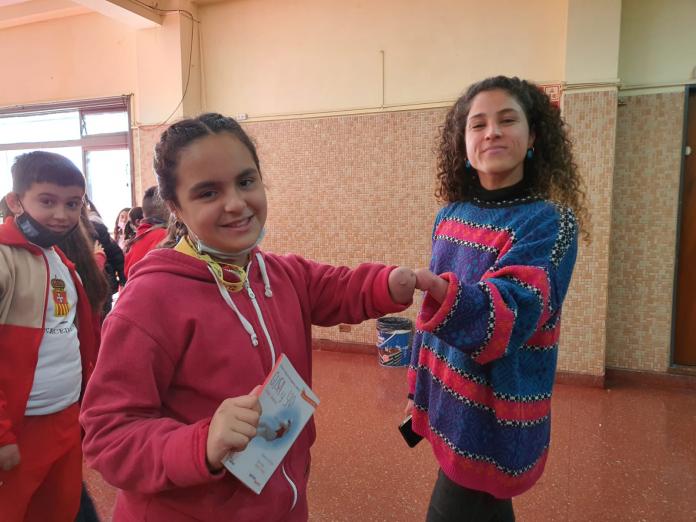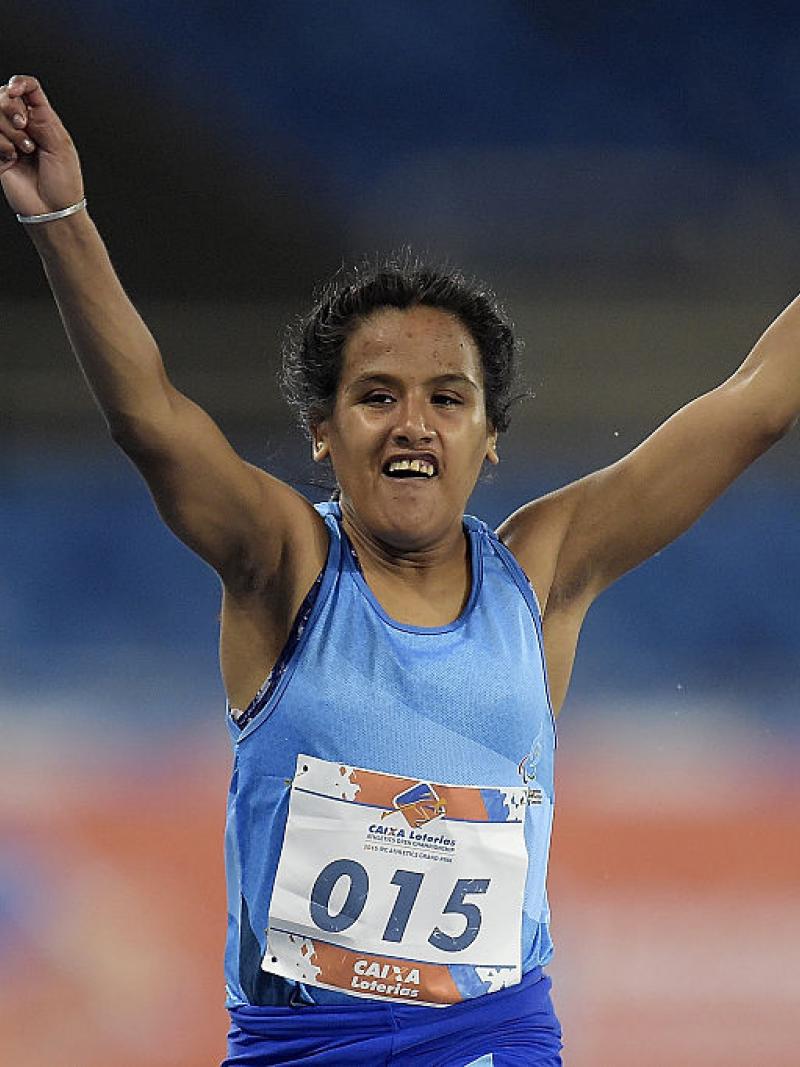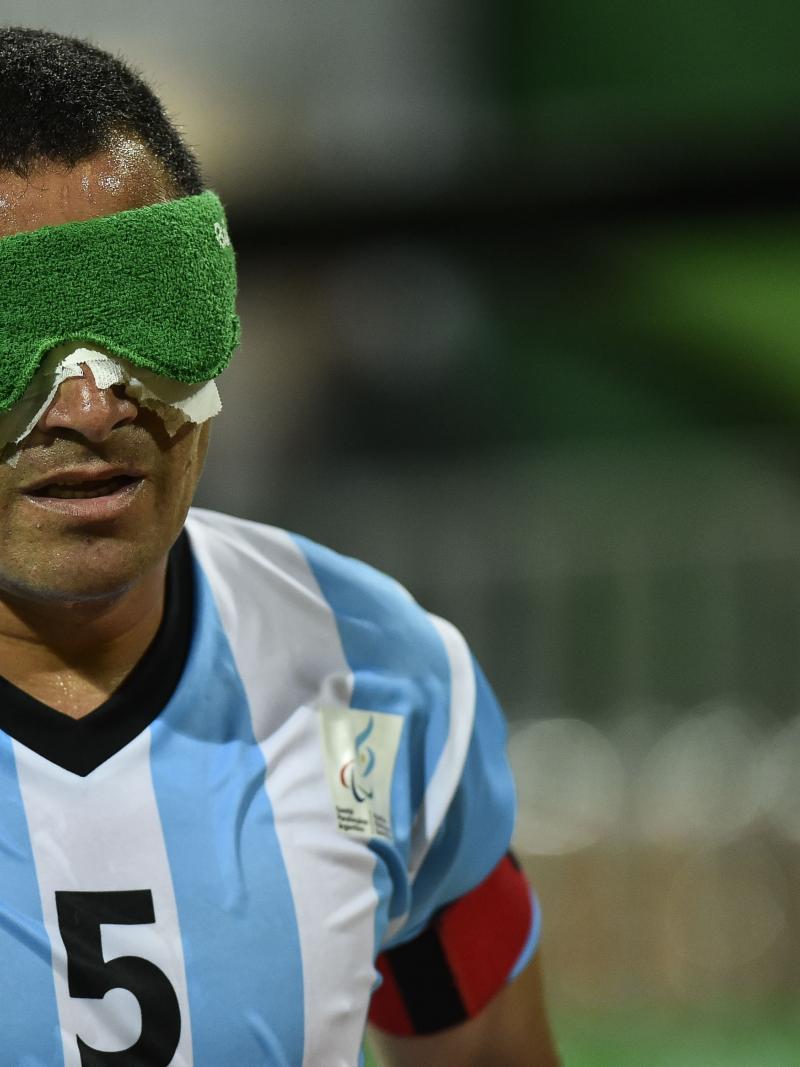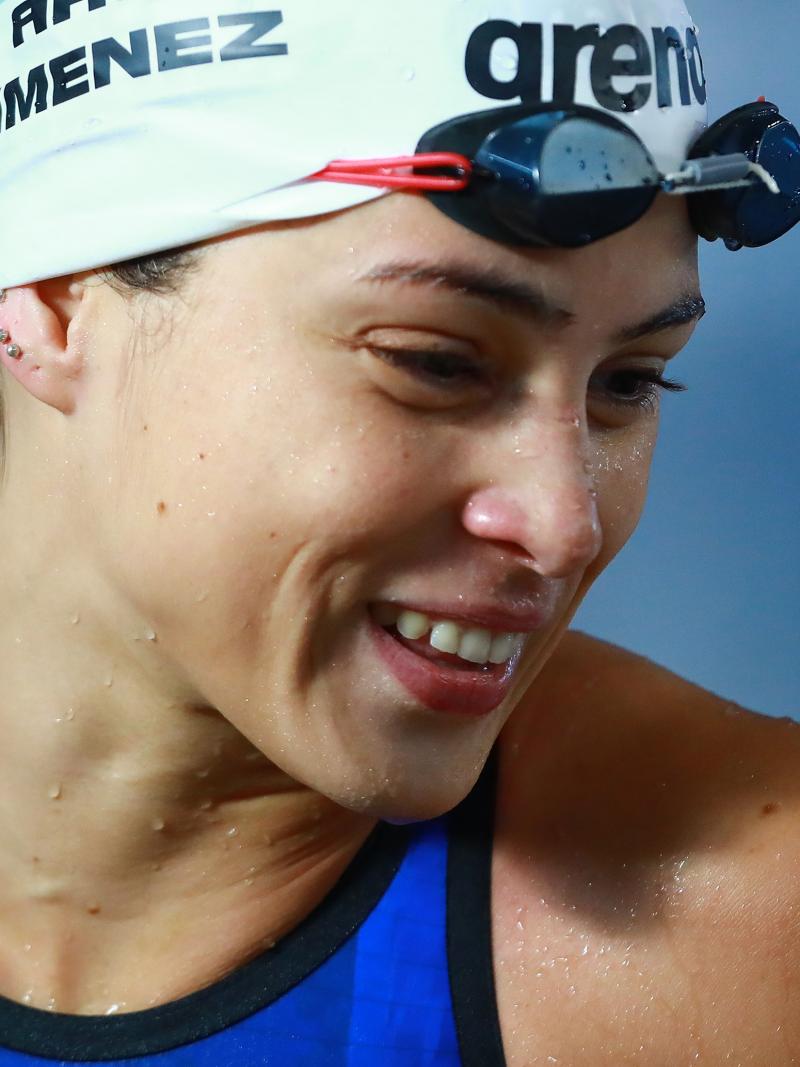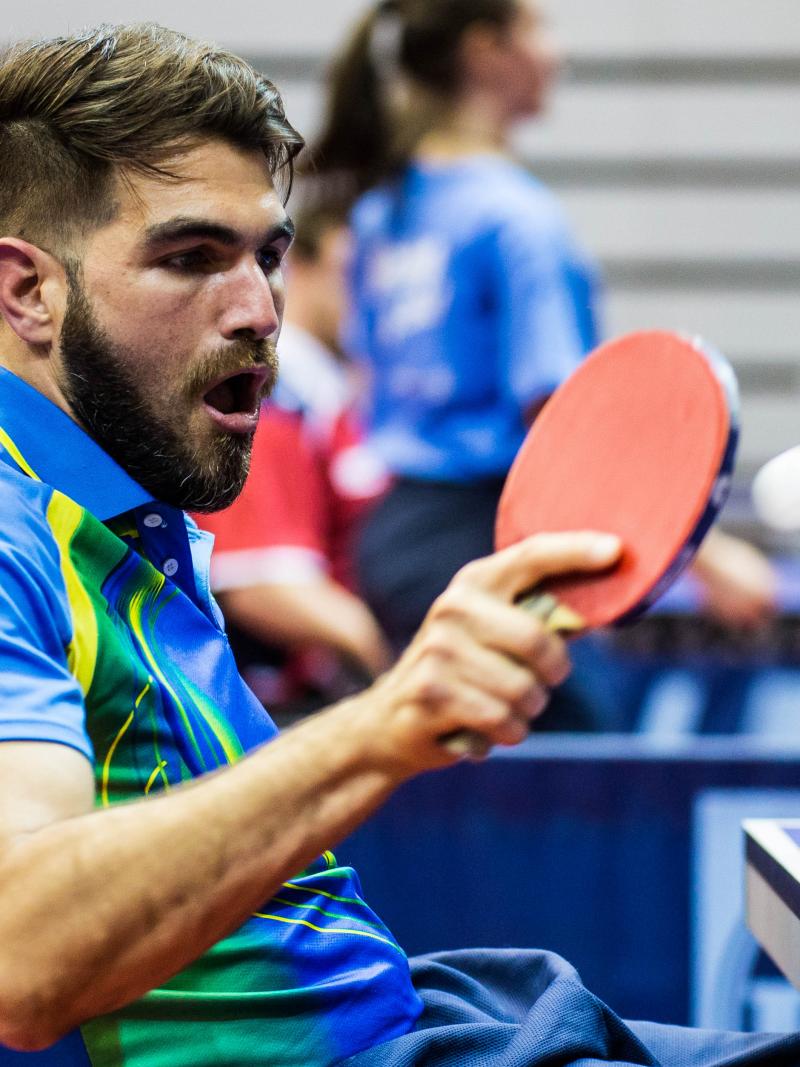Children’s book series aims to write new chapter for Para sports in Argentina
'People first, athletes second and disability third’ is the main message of seven children's books on Para athletes. The books are packed with digital features, such as sign language and audio options, to make the reading experience accessible for everyone 19 Apr 2023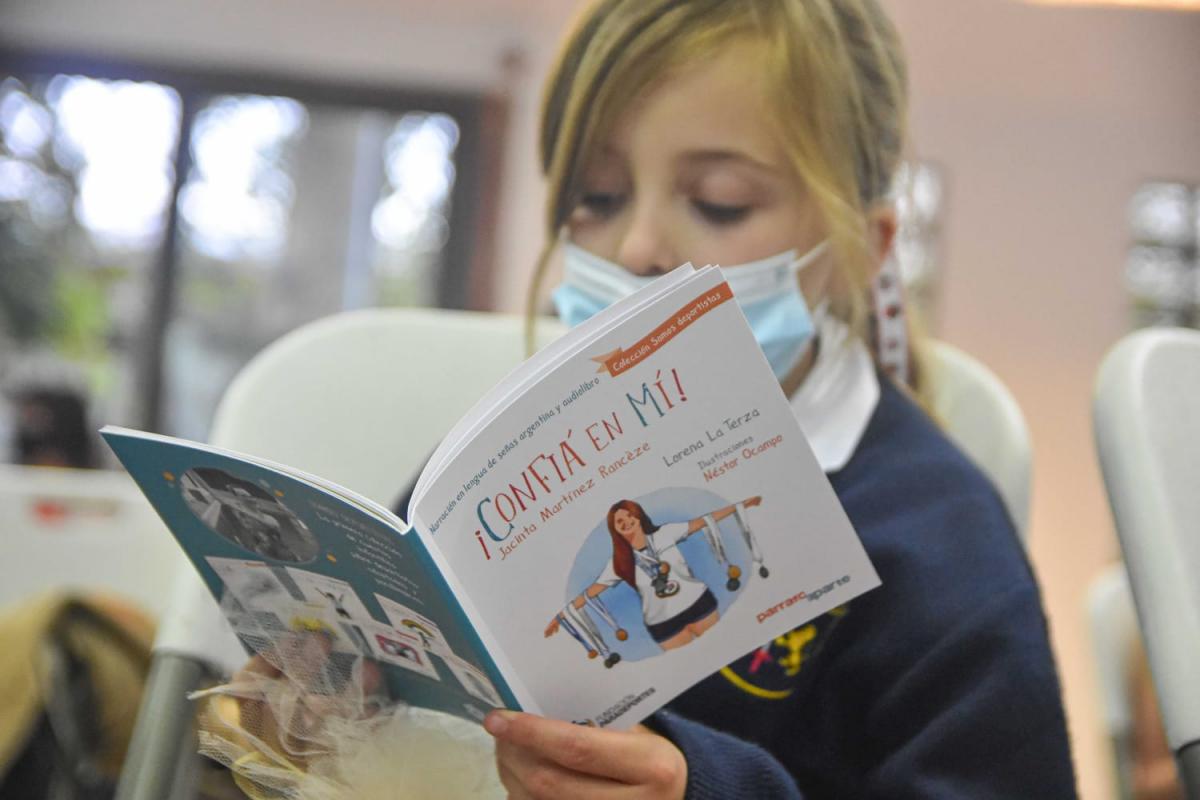
Over the past year, seven books on Paralympic athletes have been published in Argentina to boost knowledge about Para sports in the country.
In a series called Somos deportistas – ‘We are athletes’ – readers can get to know the stories behind some of Argentina’s biggest names in Para sports. Blind football star Silvio ‘Blind Maradona’ Velo, Rio 2016 sprint champion Yanina Martínez and swimming ace Daniela Giménez are some of the athletes who have been featured in the successful series.
The brain behind the books is Argentinian journalist Maximiliano Nóbili, founder and president of Paradeportes, a media platform about Para sports in Argentina.
“I had the idea to do something important and relevant before the Tokyo (2020) Paralympic Games,” he explained. “I said, ‘What do we have to do that is different?’ And the books were a great idea. They tell the history of real athletes – not just people with a disability.
“The message to everybody who decides to advance is that it is possible. It doesn’t matter if you cannot see or if you have one hand or leg. Of course, it’s not easy but if you have a purpose in life, sport is a very good way to keep in touch with other people, to travel and to see other countries, cities and to advance in life.”
People first, athletes second, disability third
Nóbili noted that the stories were written to be “firstly about the people, secondly about the athletes and thirdly about the disability”.
“We are making books about disability sports but first and foremost they are female and male athletes with families and lives,” he said. “The most important thing is not whether you have one or two hands. The most important thing is what they do with their lives.”
Nóbili published four books before Tokyo 2020 and three afterwards, with a promise of more to come.
“I think it’s something new in the world,” he said. “That’s why the collection is so important.
“It was received in a fantastic way and other media outlets also published the collection,” he added.
“Other athletes have called me wanting their stories told, saying ‘When are you going to do my book?’ Well, the idea is to continue working with more titles, with different athletes, with different sports. It’s a very good way for us to show the real life of these athletes, that they do something fantastic and could reach a very high level.
“They have all decided, together with their families, that they are not going to just stay at home. Sports are a very good way to make a difference.”
For example, by inspiring more children with disabilities to get into sports.
“They don’t have to do it to become a Paralympian, but just for pleasure or because it’s good for their health,” Nóbili said. “That is also important.
“It’s how it works in Argentina, but I hope that there will come more support from these activities from the people, the media and the government.”
An accessible reading experience
The biography of three-time Paralympic medallist Silvio Velo is available in Braille, the writing system for vision impaired people. And all the books are packed with digital features to maximise the reading experience, making it accessible for everyone.
“All seven books have a QR code on the first page,” Nóbili said. “When you scan it with your phone, the interpretation of it in sign language appears. There is also an audio book for those who can’t read.
“In all books we tell the history of all athletes and at the end we talk about the most important moment of this athlete’s career. For example, Yanina Martinez won a medal in Rio and at the end of the book there is a QR code that will show you Yanina running in that moment.
“Silvio Velo won the World Cup after a final against Brazil that Argentina won 1-0. Silvio scored the goal and at the end of the book there is a QR code for you to see the goal. In each book you can see the real athletes. On the last page, there is another QR code with a video that we produced in 2019, that shows how to play every sport.”
Stories off the page
Swimming ace Daniela Giménez jumped at the chance to take part.
“Representation matters,” she said. “I didn’t have it when I was a kid. I didn’t really know any other people with disabilities. (I knew) even less about Para athletes and that I could be one. It shows that people with disabilities are less marginalised than before.”
Giménez thinks the books can help more than just children with disabilities: “It was something very special, because not only children with disabilities came up to me and said, ‘This was amazing and I loved it’, but also adults with disabilities said that they never knew how to tell their kids, nephews and nieces about their disabilities and that this book had helped a lot.”
An encounter with one young reader in particular left a lasting impression on Giménez, who was born without her left hand.
“We had this little book fair and all the books were presented and this eight-year-old girl went into these books, she was so excited, because she is also missing a hand. So she asked her mom to buy my book.
“She returned the next day because she wanted all the other books, and she ended up having her whole school doing a project about the books, us, and Para athletes. They started doing research about Para sports and disability and it was amazing.”
The girl reached out to Nobíli and said her dream was for Giménez to come and hold a talk at her school – which she did.
“It was an amazing experience because kids felt represented, not only because of the disability, not only because I’m different," Giménez said. "One thing about the books is to show that difference and to celebrate it. That’s one of the most amazing things about the Paralympic movement as well – celebrating all those differences and disabilities.
“There are so many kids these days who have these opportunities that, when I was younger, there wasn’t that chance. To question your gender or sexuality and stuff like that.
“Suddenly in this school we had kids with disabilities and other kids questioning all these other things that are seen as differences and as being different. A few of them approached me after the talk, saying how important it was for them to hear my talk and read my story and to see me there, having me at their school, because they also felt different. In a slightly different way, but now they know that it’s OK to be different and I loved it.
“Para sport in Argentina has been growing so much and that is amazing. One thing comes with the other so I think that there is a worldwide movement to show people with disabilities in more common places, that we live and exist among other human beings in places such as school, work, gym or whatever.
“Now it’s more inclusive and that helps to increase the numbers of Para athletes, which forces the teams to be more professional and to have better coaches – everything comes together and connects, and these books are part of that.
“They are showing successful people with disabilities so it’s going to be amazing, not only for Para sports but for people with disabilities in general, to do whatever they want with their lives.
“It’s empowering, not only the kids but parents, who have been told that their kid is going to be dependent on someone their entire lives and that they’re not going to be able to do anything on their own. That is just going to show them that it’s wrong and that they can do anything, even if they don’t become professional Para athletes.”





